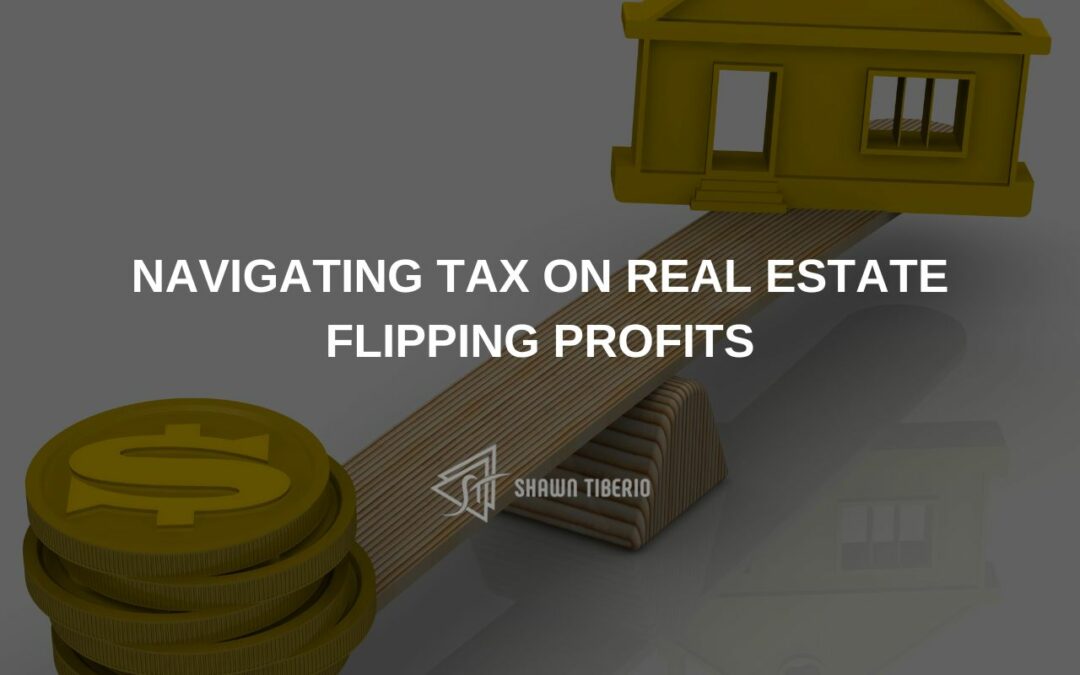You know the saying, ‘It takes money to make money.’ Well, when it comes to flipping homes, it’s not just about having the capital – it’s about using it wisely. Whether you’re a seasoned flipper or just starting out, the right financing strategy can make or break your project.
You might be surprised to learn that there are seven smart financing strategies that can help you make the most of your investment, each with its own advantages and potential pitfalls.
So, if you want to maximize your profits and minimize your risks, it’s crucial to understand these options and choose the one that best fits your specific situation.
Key Takeaways
- Traditional bank loans offer competitive interest rates and longer repayment terms but have stringent credit requirements and a lengthy approval process.
- Alternative financing options like hard money lenders provide quick access to capital with less stringent credit requirements but come with higher interest rates and upfront fees.
- Home Equity Line of Credit (HELOC) offers flexibility and potential cost savings with lower interest rates compared to other forms of financing, but there are risks of property value decrease and foreclosure if unable to make payments.
- Fix-and-flip loans provide quick approval and flexible terms tailored to real estate investors’ needs, with options for longer or shorter loan terms and interest-only payments. FHA 203(k) Rehab Loan is a good option for financing fix-and-flip projects with lower down payments and more lenient credit requirements.
Traditional Bank Loans
When flipping homes, traditional bank loans can provide you with a reliable source of financing, offering competitive interest rates and longer repayment terms. However, it’s essential to consider alternative financing options, especially if you have limited experience or a less-than-stellar credit history.
Traditional bank loans typically have stringent credit requirements, making it challenging for some home flippers to qualify. These loans often necessitate a credit score of 680 or higher, a stable income, and a low debt-to-income ratio. Moreover, traditional bank loans may involve a lengthy approval process, which could hinder your ability to seize time-sensitive investment opportunities.
Despite the credit requirements, traditional bank loans have their advantages. They generally offer lower interest rates compared to alternative financing options, resulting in reduced borrowing costs over the life of the loan. Additionally, banks may be more willing to extend larger loan amounts, enabling you to tackle more extensive renovation projects.
Furthermore, traditional loans often come with longer repayment terms, providing flexibility in managing your cash flow during the renovation and selling phases. This can be particularly advantageous when unexpected delays or expenses arise, allowing you to navigate through challenges without incurring hefty fees or penalties.
Hard Money Lenders
Looking for private funding options for your home-flipping projects? Hard money lenders offer a viable alternative to traditional bank loans, providing quick access to capital with less stringent credit requirements.
Understanding the loan terms and rates associated with hard money lending is crucial for making informed financing decisions.
Private Funding Options
Private funding options, such as hard money lenders, offer real estate investors a quick and flexible source of capital for their flipping projects. In addition to hard money lenders, there are other private funding options like angel investors, real estate, peer-to-peer lending, and investment opportunities that can provide alternative financing solutions for your real estate ventures. These options can be particularly beneficial for flippers who need fast access to funds and may not meet the strict requirements of traditional lenders. Below is a comparison table of different private funding options to help you make an informed decision.
| Funding Option | Interest Rates | Loan Terms |
| Hard Money Lenders | 7-12% | 6-18 months |
| Angel Investors | 10-20% | Flexible |
| Peer to Peer Lending | 5-10% | 1-5 years |
Consider the specific terms and conditions of each option to determine the best fit for your flipping project.
Loan Terms and Rates
As you assess hard money lenders as a private funding option for your flipping project, it’s essential to delve into the specific loan terms and interest rates they offer, providing valuable insights for your financing strategy. When considering hard money lenders, pay close attention to:
- Loan Terms: Hard money lenders typically offer shorter loan terms ranging from 6 to 18 months.
- Interest Rates: Expect higher interest rates compared to traditional loans, often ranging from 7% to 12%.
- Points and Fees: Consider the upfront points and fees, which can range from 2% to 4% of the total loan amount.
- Loan-to-Value (LTV) Ratio: Hard money lenders may finance up to 90% of the property’s purchase price, but it’s crucial to understand the LTV ratio they offer.
Understanding these key aspects of hard money loan terms and rates will enable you to make informed financing decisions for your house-flipping venture.
Private Money Lenders
One of the most effective financing strategies for home flippers involves leveraging private money lenders to secure the necessary capital for property acquisitions and renovations. Private money lenders, often individuals or small groups, can offer more flexible terms and quicker funding compared to traditional financial institutions.
When working with private money lenders, establishing strong investor relations is crucial. Communicating your investment strategy, projected returns, and risk mitigation plans effectively can help build trust and attract potential lenders.
Incorporating private money lenders into your financing strategy requires a thorough risk assessment. Private lenders typically seek higher returns to compensate for the increased risk compared to traditional lenders. As a home flipper, it’s essential to demonstrate a clear understanding of the potential risks involved in each project, along with your mitigation strategies. This may include detailed market analysis, renovation plans, and realistic sales projections. By effectively presenting this information, you can increase lender confidence and attract competitive financing terms.
Additionally, maintaining transparent and open communication throughout the project is vital for successful investor relations. Keeping private money lenders informed about project milestones, challenges, and successes can help foster trust and potentially lead to repeat investments.
Ultimately, leveraging private money lenders requires a strategic approach that emphasizes risk assessment and proactive investor relations to secure the necessary financing for profitable home-flipping ventures.
Home Equity Line of Credit (HELOC)
When considering a Home Equity Line of Credit (HELOC) for financing home flipping projects, it’s important to weigh the pros and risks.
Understanding the qualification requirements will help you make an informed decision about whether a HELOC is the right financing option for your specific situation.
Pros of HELOC
Utilizing a HELOC for financing home flipping offers flexibility and potential cost savings, making it a favorable option for real estate investors. Here are the pros of using a HELOC for financing your home flipping projects:
- Quick Access: HELOC funds are easily accessible, allowing you to capitalize on time-sensitive investment opportunities without delays.
- Flexible Financing: You can borrow and repay funds as needed, giving you the flexibility to manage cash flow and invest in multiple properties simultaneously.
- Lower Interest Rates: HELOCs often have lower interest rates compared to other forms of financing, reducing the overall cost of borrowing.
- Tax Deductibility: The interest paid on a HELOC may be tax-deductible, providing potential tax benefits for your real estate investment endeavors.
HELOCs provide real estate investors with a versatile financing tool that can enhance profitability and expedite property acquisitions.
Risks to Consider
Considering the potential benefits of using a HELOC for financing home flipping, it’s crucial to carefully evaluate the associated risks before proceeding with this funding strategy.
While a HELOC offers flexibility and relatively low interest rates, there are potential pitfalls to be aware of.
One of the financial risks is the variable interest rates associated with HELOCs, which can lead to unpredictable borrowing costs.
Additionally, if the real estate market experiences a downturn, the value of the property securing the HELOC may decrease, potentially leaving you with negative equity.
Moreover, if you’re unable to make the required monthly payments, you risk foreclosure on your property.
It’s essential to have a solid understanding of these potential risks and have a detailed plan in place to mitigate them before utilizing a HELOC for financing your home-flipping ventures.
Qualification Requirements
To qualify for a Home Equity Line of Credit (HELOC), you typically need a strong credit score and sufficient equity in your property. The specific qualifications may vary among lenders, but generally, you’ll need:
- A credit score of 620 or higher to be considered for a HELOC.
- Proof of stable income and employment for income verification.
- A debt-to-income ratio below 43% demonstrates your ability to handle additional debt.
- Equity in your property, typically at least 15-20% of the home’s value.
Meeting these qualification requirements will increase your chances of securing a HELOC for your home-flipping ventures.
It’s essential to carefully review the specific requirements of different lenders to find the best fit for your financial situation.
Fix-and-Flip Loans
When pursuing fix-and-flip projects, securing a specialized loan can be a crucial aspect of your financing strategy. Fix-and-flip loans are tailored to real estate investors who aim to purchase, renovate, and sell properties within a short timeframe. These loans often come with flexible terms that cater to the unique needs of property investors.
One of the key advantages of fix-and-flip loans is their quick approval process. Traditional mortgage loans may take weeks or even months to secure, which can be detrimental in the fast-paced world of real estate flipping. In contrast, fix-and-flip loans are designed to provide rapid access to funds, enabling you to act swiftly on promising investment opportunities.
The flexibility of terms associated with fix-and-flip loans allows you to tailor the loan to your specific project. Whether you need a loan with a longer or shorter term or one that offers interest-only payments during the renovation phase, these options can often be accommodated. Additionally, fix-and-flip loans may have lenient eligibility criteria compared to traditional mortgage loans, making it easier for real estate investors to qualify.
Given the time-sensitive nature of fix-and-flip projects, having access to quick financing is essential. Fix-and-flip loans offer a valuable solution, providing the agility and flexibility needed to capitalize on profitable real estate investment opportunities. By understanding and leveraging these specialized loan products, you can enhance your ability to execute successful fix-and-flip projects.
FHA 203(k) Rehab Loan
An FHA 203(k) Rehab Loan enables real estate investors to finance the purchase and renovation of properties through a streamlined process. If you’re considering this financing option, here’s what you need to know:
- FHA 203(k) Eligibility: To qualify for an FHA 203(k) loan, you must meet the FHA’s minimum property standards and credit requirements. Additionally, you’ll need to work with a contractor who’s familiar with the intricacies of the 203(k) loan program.
- Application Process: The application process for an FHA 203(k) loan involves detailed paperwork and documentation, including a detailed proposal from a contractor outlining the scope of work and costs. The lender will also require an appraisal of the property’s value after the proposed renovations.
- Compare with Traditional Loans: Unlike traditional home improvement loans, FHA 203(k) loans are backed by the Federal Housing Administration, which allows for lower down payments and more lenient credit requirements. This makes them a viable option for investors who may not qualify for traditional financing.
- Benefits of FHA 203(k) Rehab Loan: One of the key benefits of an FHA 203(k) loan is the ability to finance both the purchase and renovation costs with a single loan. Additionally, the interest rates on these loans are often competitive with traditional mortgage rates, making them a cost-effective option for financing fix-and-flip projects.
Understanding the eligibility requirements, and application process, and comparing the loan with traditional options can help you determine if an FHA 203(k) Rehab Loan is the right choice for your fix-and-flip investment.
Crowdfunding
Crowdfunding has become an increasingly popular financing option for real estate investors seeking capital for fix-and-flip projects. This method allows individuals to pool their resources and invest in real estate opportunities through online platforms. There are two primary types of real estate crowdfunding: equity crowdfunding and debt crowdfunding. Equity crowdfunding involves investors taking an ownership stake in the property, while debt crowdfunding provides investors with fixed returns similar to a loan.
| Types of Crowdfunding | Description |
| Equity Crowdfunding | Investors become partial owners of the property and have the potential for profit upon resale. |
| Real Estate Crowdfunding | Allows individuals to invest in a diversified real estate portfolio without owning physical property. |
Several crowdfunding platforms have emerged to facilitate real estate investments. These platforms provide a marketplace for investors to browse and select projects based on their preferences and risk appetite. However, it’s essential to note that crowdfunding regulations vary by country and region. In the United States, the Securities and Exchange Commission (SEC) regulates equity crowdfunding to protect investors from fraudulent activities and ensure transparency in transactions. Understanding these regulations is crucial for both real estate investors and crowdfunding platforms to operate within legal boundaries and maintain trust within the market.
Frequently Asked Questions
How Can Home Flippers Use Their Retirement Funds to Finance Their Projects?
You can use retirement funds for home-flipping projects, considering various financing options. It’s crucial to assess the risk and ensure sustainable financing.
Research self-directed retirement accounts as they allow investing in real estate. Understand the tax implications and penalties associated with early withdrawals.
Consult a financial advisor to weigh the pros and cons of using retirement funds and explore alternative financing avenues for your home-flipping endeavors.
Are There Any Tax Implications of Using Different Financing Strategies for Flipping Homes?
When it comes to flipping homes, tax implications can vary depending on your financing strategies. Different funding sources, like retirement funds, can have unique tax considerations.
It’s crucial to weigh the potential tax consequences when deciding on project financing. Being savvy about the tax implications of your financing choices can help you make informed decisions and maximize your profits in the long run.
Can Home Flippers Use a Combination of Financing Options to Fund a Single Project?
Yes, home flippers can use a combination of financing options to fund a single project.
Joint ventures and private lenders can be beneficial in this regard. Utilizing a joint venture allows you to pool resources and expertise with another party, while private lenders offer flexible terms and quick access to capital.
This approach can provide the necessary funds for a home-flipping project while mitigating risks and maximizing returns.
What Are the Potential Risks and Benefits of Partnering With Other Investors for Financing a Flip?
When considering partnering risks and investor benefits for financing a flip, it’s like navigating a complex real estate market. Partnering can bring in additional capital and expertise, but it also means sharing profits and decision-making.
Benefits include pooling resources, reducing individual risk, and accessing new networks.
Risks involve potential conflicts, differing priorities, and the need for clear communication and legal agreements.
Analyzing these factors can help you make informed decisions when seeking financing for your flip.
Are There Any Alternative Financing Options Specifically Designed for Eco-Friendly or Sustainable Home Flipping Projects?
When it comes to eco-friendly financing for sustainable home flipping, there are alternative options tailored to support green initiatives.
Green financing programs offer renewable funding that aligns with eco-friendly home improvement projects. These options may include special loans or grants designed specifically for sustainable renovations, energy-efficient upgrades, and environmentally friendly construction materials.
Final Thoughts
So, with these 7 smart financing strategies, you have the tools to make your home-flipping dreams a reality.
But are you ready to take the leap and start flipping homes?
With the right financing in place, there’s no limit to what you can achieve in the real estate market.
Now go out there and make those smart financing decisions to maximize your flipping potential!












